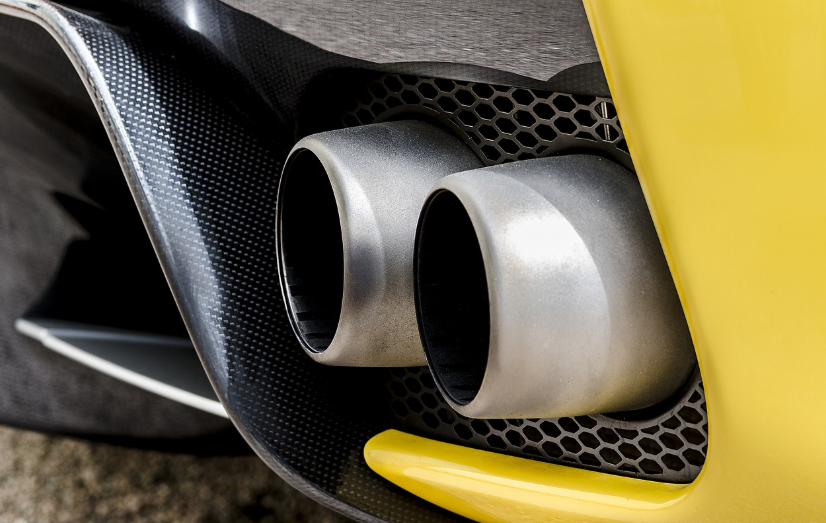Mistakes to Avoid When Replacing Your Old Car
Replacing an old car can feel like a fresh start. The idea of newer features, better mileage, and fewer repair bills is exciting. But in the rush to upgrade, many people fall into common traps that turn a good decision into a costly one. It is easy to get swept up by slick ads, fast-talking salespeople, or even your impatience. That is where problems start. Whether you are buying new or used, financing, or paying upfront, there are choices along the way that can either save you money or waste it. This is not just about what car you buy. It is about how you make the decision. A little extra care can go a long way. Many mistakes are avoidable if you know what to watch out for. So before you trade in those old keys, take a moment to slow down and think clearly. Here are some of the most common missteps to avoid when replacing your old car.
Skipping the Budget Reality Check
Before you even look at cars, take a hard look at your finances. Many people make the mistake of only focusing on monthly payments. That number might seem manageable, but it does not show the full cost. Add up insurance, maintenance, taxes, and interest. Suddenly, that affordable deal is not so affordable. Some buyers stretch their budget too thin just to drive something flashy. It feels good at the moment but leads to stress later. Others rush into financing without comparing rates, ending up with unfavorable terms that last for years. Take time to get pre-approved through your bank or credit union. That gives you a clearer picture of what you can afford and puts you in a stronger position when negotiating. The goal is not just to buy a car. It is to buy a car that fits your life, not just your wishlist.
Falling for Features You Do Not Need

Modern cars come packed with features. Heated seats, fancy displays, automatic everything. It is tempting to want them all. But chasing extras can add thousands to the price without adding real value to your daily drive. Many people overpay for tech they rarely use or do not fully understand. Others pick a higher trim level just because it sounds better. Instead, focus on what matters for your lifestyle. Do you need better gas mileage? Extra cargo space? All-wheel drive? Start with those needs, then filter the options. It is easy to be dazzled at the dealership, especially with shiny interiors and persuasive upgrades. But remember, those extras are part of the dealership’s profit strategy. Stick to what matters. You will save money and avoid regret later on.
Not Researching the Vehicle’s History or Reputation

If you are buying used, skipping research can be a costly mistake. A clean-looking car can still hide a rough past. Always ask for a vehicle history report. Check for accidents, title issues, or repeated repairs. But go further than that. Look up owner reviews, recall information …








 Probably the most exhilarating aspect of birding is being able to fully immerse yourself in nature. And what better way to do that than with fully-open mods for your Land Cruiser? Picture removing the roof, doors, and even the windshield, allowing you to feel the wind on your face and hear the sounds of nature all around you.
Probably the most exhilarating aspect of birding is being able to fully immerse yourself in nature. And what better way to do that than with fully-open mods for your Land Cruiser? Picture removing the roof, doors, and even the windshield, allowing you to feel the wind on your face and hear the sounds of nature all around you.



 Braking suddenly or accelerating too quickly is not a friendly gesture to your brake system. Smooth transitions between acceleration and braking can be much easier on the brakes, reducing wear and tear throughout the system. Driving smoothly also helps minimize the stress put on the rest of your car’s components, leading to better performance overall.
Braking suddenly or accelerating too quickly is not a friendly gesture to your brake system. Smooth transitions between acceleration and braking can be much easier on the brakes, reducing wear and tear throughout the system. Driving smoothly also helps minimize the stress put on the rest of your car’s components, leading to better performance overall.

 Your brakes should be inspected every time you change your oil and replace when they show signs of wear and tear. Make sure that you have a professional inspect your brakes if there are any signs of problems to ensure they are safe to operate. It is advisable to check brake systems every 12 months or 12,000 miles. It’ll ensure that your brakes are working properly and reduce the risk of accidents.
Your brakes should be inspected every time you change your oil and replace when they show signs of wear and tear. Make sure that you have a professional inspect your brakes if there are any signs of problems to ensure they are safe to operate. It is advisable to check brake systems every 12 months or 12,000 miles. It’ll ensure that your brakes are working properly and reduce the risk of accidents.
 Before buying a car online, it is essential to research the seller. Look up their reviews and make sure they have a good reputation. Research any complaints that may have been filed against them and how long they’ve been in business. Make sure you ask questions about the condition of the car, any warranties that may be included, and what shipping arrangements need to be made.
Before buying a car online, it is essential to research the seller. Look up their reviews and make sure they have a good reputation. Research any complaints that may have been filed against them and how long they’ve been in business. Make sure you ask questions about the condition of the car, any warranties that may be included, and what shipping arrangements need to be made. Before signing any contracts or making a purchase online, learn about your rights as a consumer. Check to see if the automobile is eligible for a return policy, and make sure that the seller’s promises are included in writing. Knowing your consumer rights can help protect you if something goes wrong.
Before signing any contracts or making a purchase online, learn about your rights as a consumer. Check to see if the automobile is eligible for a return policy, and make sure that the seller’s promises are included in writing. Knowing your consumer rights can help protect you if something goes wrong.
 One of the most popular mods for Camaros (and any car) is adding a spoiler. Spoilers are not only aesthetically pleasing, but they also serve a purpose. Spoilers help with grip and stability at high speeds by adding downforce to the car’s rear. A spoiler is a great way to do it if you’re looking to add a little extra style to your Camaro.
One of the most popular mods for Camaros (and any car) is adding a spoiler. Spoilers are not only aesthetically pleasing, but they also serve a purpose. Spoilers help with grip and stability at high speeds by adding downforce to the car’s rear. A spoiler is a great way to do it if you’re looking to add a little extra style to your Camaro. Chevrolet Camaro is such a beautiful car that it doesn’t need much to make it look even better. However, if you’re looking to add a personal touch, bringing in some custom graphics is a great way to do it. You can have them installed on the hood, trunk, or anywhere else you can think of.
Chevrolet Camaro is such a beautiful car that it doesn’t need much to make it look even better. However, if you’re looking to add a personal touch, bringing in some custom graphics is a great way to do it. You can have them installed on the hood, trunk, or anywhere else you can think of.
 One of the most important reasons to keep up with car maintenance is that it can help reduce wear and tear on your vehicle. When you don’t maintain your car, parts can start to break down and wear out prematurely. This not only reduces the lifespan of your car but can also lead to more expensive repairs down the line. In fact, skipping just one oil change can increase wear and tear on your engine. If you want to keep your car running smoothly and avoid costly repairs, it’s essential to stick to the maintenance schedule.
One of the most important reasons to keep up with car maintenance is that it can help reduce wear and tear on your vehicle. When you don’t maintain your car, parts can start to break down and wear out prematurely. This not only reduces the lifespan of your car but can also lead to more expensive repairs down the line. In fact, skipping just one oil change can increase wear and tear on your engine. If you want to keep your car running smoothly and avoid costly repairs, it’s essential to stick to the maintenance schedule. The second benefit of regular
The second benefit of regular  The third important reason to maintain your car is for safety purposes. By keeping up with the recommended service schedule, you can help ensure that your car is safe to drive. This is especially important if you have young children who ride in the car with you on a regular basis. Many safety features on today’s cars, such as airbags and seatbelts, require regular maintenance in order to work properly. This is why taking your car in for service when the manufacturer recommends is important.
The third important reason to maintain your car is for safety purposes. By keeping up with the recommended service schedule, you can help ensure that your car is safe to drive. This is especially important if you have young children who ride in the car with you on a regular basis. Many safety features on today’s cars, such as airbags and seatbelts, require regular maintenance in order to work properly. This is why taking your car in for service when the manufacturer recommends is important.
 One of the best ways to protect your car’s paint job is to keep it out of the sun. The sun’s ultraviolet (UV) rays can fade and damage the paint over time. If you must park your car in direct sunlight, try to park in the shade whenever possible.
One of the best ways to protect your car’s paint job is to keep it out of the sun. The sun’s ultraviolet (UV) rays can fade and damage the paint over time. If you must park your car in direct sunlight, try to park in the shade whenever possible. Of course, one of the best ways to protect your car’s paint job is to simply wash it regularly. This will remove any dirt, grime, and salt that could potentially damage the paint. Be sure to use a gentle soap and avoid scrubbing too hard, as this can also damage the paint.
Of course, one of the best ways to protect your car’s paint job is to simply wash it regularly. This will remove any dirt, grime, and salt that could potentially damage the paint. Be sure to use a gentle soap and avoid scrubbing too hard, as this can also damage the paint.
 Washing the car keeps it shiny, clean, and corrosion-free. When dirt particles accumulate, they are abrasive, while liquids like juices and sodas can be corrosive. Also, vacuum the interior of your car and wipe lenses on your dashboard with a damp cloth. Take out car mats and hose them down to remove dirt that otherwise wears out your mats, and ensure you dry them well before replacing them in the car.
Washing the car keeps it shiny, clean, and corrosion-free. When dirt particles accumulate, they are abrasive, while liquids like juices and sodas can be corrosive. Also, vacuum the interior of your car and wipe lenses on your dashboard with a damp cloth. Take out car mats and hose them down to remove dirt that otherwise wears out your mats, and ensure you dry them well before replacing them in the car. As much as possible, avoid eating inside your car. You can also cover surfaces and keep floor mats to prevent grinding mud in the carpets. Seat covers will help you protect the car seat upholstery and aid your posture, customizing the car’s outlook. Also, ensure you regularly vacuum the car and keep the windows slightly open when you live in hot regions. The hot air inside the vehicle can dry and damage the interior when it can’t escape out.
As much as possible, avoid eating inside your car. You can also cover surfaces and keep floor mats to prevent grinding mud in the carpets. Seat covers will help you protect the car seat upholstery and aid your posture, customizing the car’s outlook. Also, ensure you regularly vacuum the car and keep the windows slightly open when you live in hot regions. The hot air inside the vehicle can dry and damage the interior when it can’t escape out. A smog check refers to the testing of a vehicle’s engine emissions, usually performed at licensed smog checking facilities. Some of the emissions measured during the check include carbon dioxide, carbon monoxide, oxygen, and hydrocarbons. Smog checks are quite essential as they help with vehicle maintenance. For example, they can be used to detect and resolve a variety of engine problems. Additionally, smog checks help to preserve the environment by ensuring the emissions from cars are kept to a minimum. As you ponder about where to get cheap smog check, here are some facts to know about smog checks.
A smog check refers to the testing of a vehicle’s engine emissions, usually performed at licensed smog checking facilities. Some of the emissions measured during the check include carbon dioxide, carbon monoxide, oxygen, and hydrocarbons. Smog checks are quite essential as they help with vehicle maintenance. For example, they can be used to detect and resolve a variety of engine problems. Additionally, smog checks help to preserve the environment by ensuring the emissions from cars are kept to a minimum. As you ponder about where to get cheap smog check, here are some facts to know about smog checks.


 the vehicle. You should try out the option and enjoy all these benefits. Getting a good car leasing company guarantees you a smooth time throughout the whole period. Here is what to consider when choosing one.
the vehicle. You should try out the option and enjoy all these benefits. Getting a good car leasing company guarantees you a smooth time throughout the whole period. Here is what to consider when choosing one. visit them to find out what makes a particular leasing company stand out. Friends or people who have managed to lease from these companies can also refer you to some of the best.…
visit them to find out what makes a particular leasing company stand out. Friends or people who have managed to lease from these companies can also refer you to some of the best.…
 How much do you intend to spend on fuel? Different cars have different fuel consumption late. If you know that you will be traveling for long distances, then it will be a wise idea that you choose a car that does not consume a lot of fuel. You can check the fuel consumptions of any car online. However, it is good to understand that smaller cars are more fuel-efficient than the big ones.
How much do you intend to spend on fuel? Different cars have different fuel consumption late. If you know that you will be traveling for long distances, then it will be a wise idea that you choose a car that does not consume a lot of fuel. You can check the fuel consumptions of any car online. However, it is good to understand that smaller cars are more fuel-efficient than the big ones.
 Use the Right Oil
Use the Right Oil
 Budget
Budget